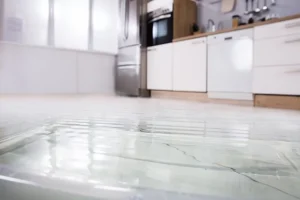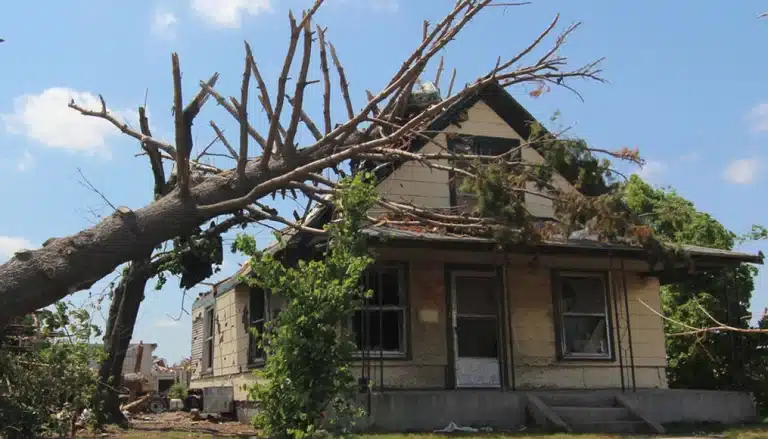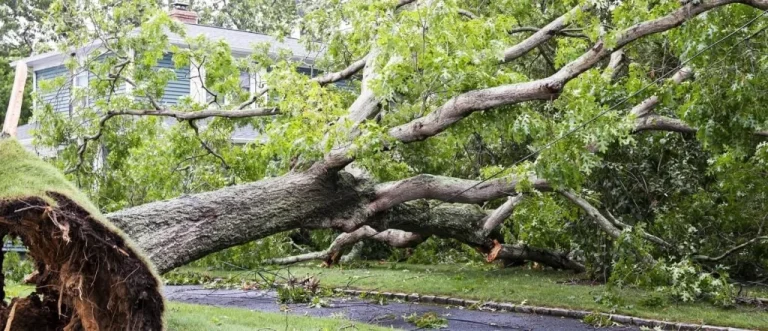Signing up for your homeowners insurance was probably a relatively straightforward process. You may have shopped around a little, compared the prices of a few providers, and then answered some basic questions about the level of coverage and deductibles you wanted.
Every month, paying your homeowners insurance premium is also a relatively straightforward process (and if it’s set up to auto-pay through your mortgage, you might not even have to think about doing it).
But what about filing a homeowners insurance claim? Water damage insurance claims can be tricky to navigate, which is even worse when you realize how expensive the damage can be.
We’ve written about some tricks and tips to protect your home from water damage claims and preventable water damage scenarios, but let’s talk about the steps you need to take when filing an insurance claim for water damage.
How to Make a Successful Water Leak Insurance Claim
After hail damage and wind damage like hurricanes, water damage insurance claims are the most commonly filed losses. Water damage can happen almost anywhere at any time and isn’t always triggered by adverse weather or flooding.
Keep in mind that water damage due to flooding is not covered by homeowners insurance. You’ll need a separate flood insurance policy to protect against damage from flooding.
Despite being so common, filing insurance claims for water damage isn’t always successful, and if your insurance company denies you coverage, the costs can be extreme.
If you want to make a successful water damage insurance claim, consider these four basic steps the moment you realize something has gone wrong:
1. Get the Leak and Water Buildup Under Control
Note that this does not mean begin repairs or restoration, as the insurance adjuster will want to come out and document the scene and ask you for pictures after the damage has occurred.
2. Document Everything
Take pictures and videos of as much as you can so that you have the evidence you’ll need to file a successful claim. This can include the source of the leak and the areas in your home impact by the water damage.
3. Call Your Insurance Provider as Quickly as Possible
Once you’ve contained the leak, you’ll want to get on the phone with your insurance company ASAP so it can begin the claims process and let you know what the next steps will be.
4. Be Prepared to Get a Second Opinion
After hashing everything out with your insurance company, you’ll need to conduct repairs. Before you begin repairs on your home, get bids from multiple contractors in your area and don’t be afraid to get a second opinion on the cost of repairs.
What Happens If My Water Damage Claim Is Denied?
So what are the most common reasons water damage insurance claims are denied? Negligence and gradual damage. Here are two examples to help break down the difference:
Gradual Damage
This is when a small or slow leak has been building up over time. You may not have realized the leak was even there, causing it to grow larger, possibly leading to standing water or mold. When gradual damage comes into play, insurance companies typically deny the claim because they consider you at least partially responsible for the damage.
Negligence
Negligence can cause your claim to be denied for things like when your pipes burst because they haven’t been cared for properly. Negligence can also be grounds to deny a water damage insurance claim when the appliance in question is old or was clearly malfunctioning.
Water Damage Insurance Claim List
The terms of your coverage can be tricky to understand. While gradual damage is often denied when you file a water damage insurance claim, that isn’t always the case.
As another example, a tree falls on your roof causing damage and you file a claim to have the roof repaired. Over time, water is still seeping in from the patched spot on the roof, leading to mold or other damages. This claim may be approved because it’s tied to an incident that was already covered under your homeowners insurance.
If you want to avoid having to determine if your claim is going to be covered or not, your best bet is to avoid water damage (as much as you can) in the first place. This list could help avoid having your claims denied in the future:
- Keep a record of all the instances you’ve had a professional service inspect your plumbing or appliances. This can help refute the idea that your water damage was gradual.
- Conduct regular inspections of all the areas where water damage can occur, including your air conditioning unit, water heater, pipes, and crawl spaces.
- Ask your insurance provider if there are any additional coverages (including mold protection) you should consider adding on to your existing policy.
The editorial content on Clovered’s website is meant to be informational material and should not be considered legal advice.




